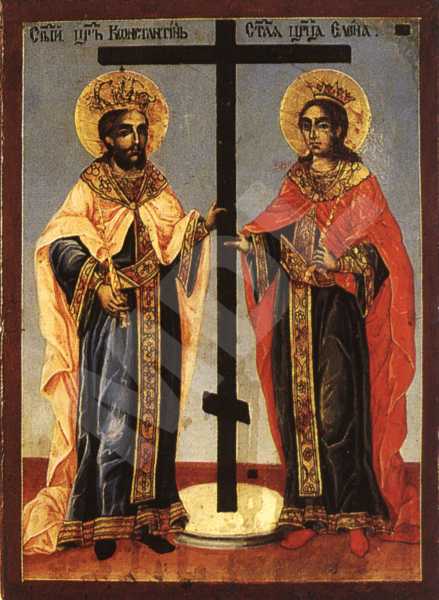St. Tsar Constantine and St. Tsaritsa Helen
Type:
Icon
Period:
The beginning of the
19 century
Toma Vishanov-Molera, born around 1750, painter of icons and murals, founder of the Bansko school of art. He grew up in the family of the clergyman Vishan. Around 1765 he went to Vienna, where he studied painting. It is not known who were his teachers there or when he returned to Bansko. His fellow villagers called him the Moler, Molera(from German Maler ‘painter’), whence the entire family's surname. Under the influence of the European 18th century art Toma Vishanov painted his works in a new manner, unknown until then in Orthodox art. The figures are realistic, vivid, expressive. Toma Vishanov is an innovator in the early period of Bulgarian Renaissance. His ideas on art were not understood and at first were rejected by his contemporaries. His work has not been studied extensively. He died after 1811 in Bansko.
Dimmensions (cm):
29
/ 22.5
/ 2
Location
Country: Bulgaria
Province: Blagoevgrad
Town: Bansko
Church: St. Trinity
Source
Country: Bulgaria
Province: Blagoevgrad
Town: Bansko
Church: St. Trinity
Object identification notes
Toma Vishanov-Molera (?)
Description
A traditional iconographic treatment of the theme. The saints are painted standing, against a pale blue background in rich royal garments and with crowns. The two of them are holding the cross of the Lord, which is between them. In his right hand he is carrying a sceptre, and she - in her left ham - a palm twig.
Iconographical technique: Combined
With velaturas. The painting layer is thin. The varnish cover is applied thinly and evenly. The gilding on the aureoles is with gold-leaf.
Base material: Wood
The base is a one-piece softwood panel with two rein forcing beams. The ground coat is of plaster, laid thinly am evenly.
State, restoration traces and comments
There are traces of retouchings in the damaged places: on the faces of the figures and along the enclosing frame. There are, in the icon's lower part, waxen deposits.


